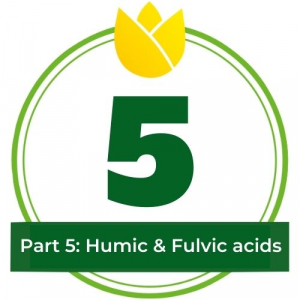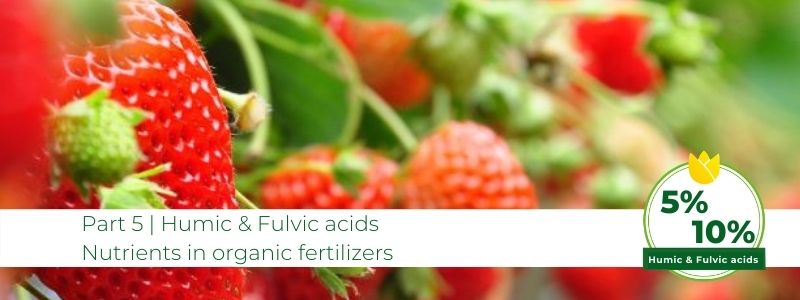Humic and fulvic acids in organic fertilizers (part 5)
We have come to the last part in the series of five. In the fifth part of nutrients in organic fertilizers we will discuss humic acids and fulvic acids. These two nutriens are less known in the world of organic fertilizers and agriculture. What is the function of these in organic fertilizers? What is the added value of humic and fulvic acids to both soil and plant? In this article we analyse both nutrients and explain the effect of them in the soil.
 What are humic acids and fulvic acids?
What are humic acids and fulvic acids?
It sounds complicated, maybe even a bit boring; humic acids and fulvic acids. These two however are an added value for organic fertilizers. To start with humic acids, which is a collection of organic compounds that are formed during the digestion of raw organic matter. Then fulvic acids, who are also a collection of organic compounds, but it are smaller molecules than humic acids. Fulvic acids are often mentioned simultaneously with humic acids, because both are end products of the natural decomposition process of organic matter.
Humic and fulvic acids are therefore hardly degradable and thus part of humus.
What is humus again? Humus is a stable substance that arises after a series of degradation processes by soil life. Now that we have summarized all definitions, we can take a closer look at the real difference between humic acids and fulvic acids? And what is their function in the soil?
The function of humic acids in the soil
What do humic acids do in a soil? Humic acids contribute to better water retention in the soil and they have a positive influence on the soil density. More air enters the soil, which is good for soil life and improves the development of the roots. Other nutrients, such as nitrogen, phosphate, potassium, magnesium and trace elements become more available to the plant, partly due to humic acids. Plant growth will be stimulated largely by humic acids.
What do fulvic acids do for the soil
Fulvic acids are transporters of nutrients and therefore important for organic fertilizer. Fulvic acids not only transport, but also mediate in the absorption of trace elements and minerals.
Humic and fulvic acids are strong together
Humic acids and fulvic acids have in common that they both stimulate the root growth of a plant. In addition them make the plant more resistant to stress together.
Have you forgotten about the other nutrients in organic fertilizers? You can read the different articles about organic matter, N-P-K, calcium and magnesium and trace elements.
Note for agricultural professionals
Adding organic fertilizer into the soil is therefore important, but the added value varies per soil type. For professional use in agriculture, horticulture and fruit and vegetable cultivation, we advise you to look at what your soil needs together with a fertilizer advisor.





